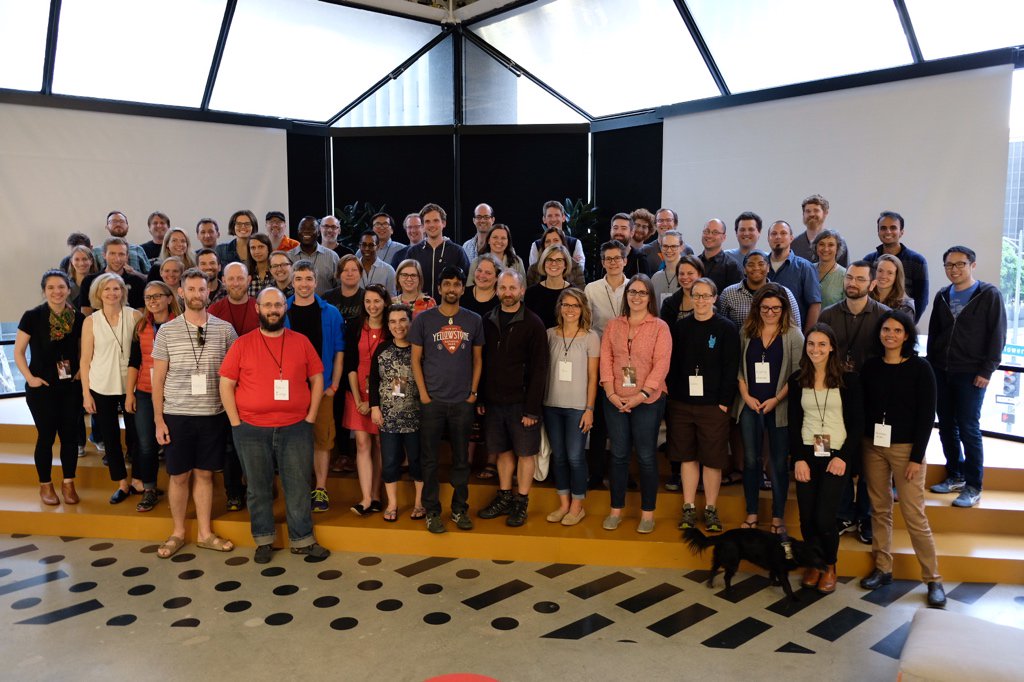June 2, 2017 From rOpenSci (https://deploy-preview-334--ropensci.netlify.app/blog/2017/06/02/unconf2017/). Except where otherwise noted, content on this site is licensed under the CC-BY license.
We held our 4th annual unconference in Los Angeles, May 25-26, 2017. Scientists, R-software users and developers, and open data enthusiasts from academia, industry, government, and non-profits came together for two days to hack on projects they dreamed up and to give our online community an opportunity to connect in-person.
The result? 70 people from 7 countries on 3 continents proposed 69 ideas leading to 21 projects in 2 days, and one awesome community just upped its game!
🔗 Look What We Made!
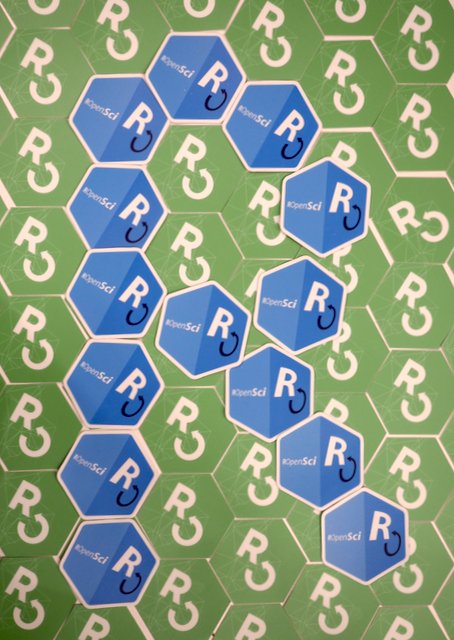
People proposed and discussed project ideas in GitHub issues in the weeks leading up to the unconf to the point that we had almost as many project ideas as participants. On the morning of Day 1, people sticker-voted for projects they’d like to work on in order to reduce the number under consideration. After some brief discussions and self-sorting, teams settled in to work around the Cross Campus DTLA co-working space for the next day and a half.
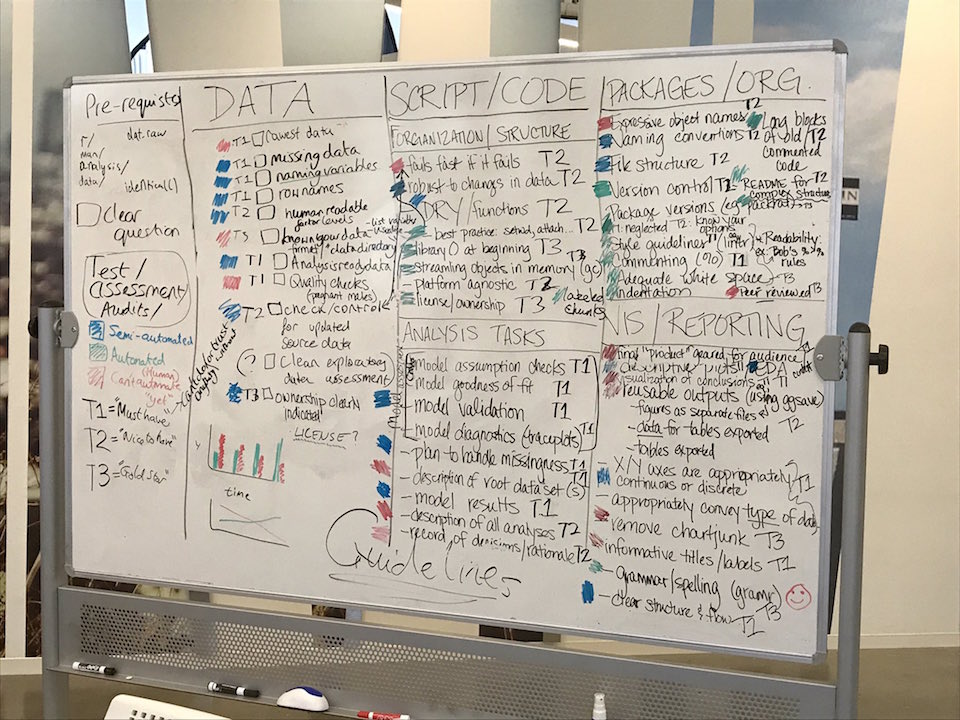
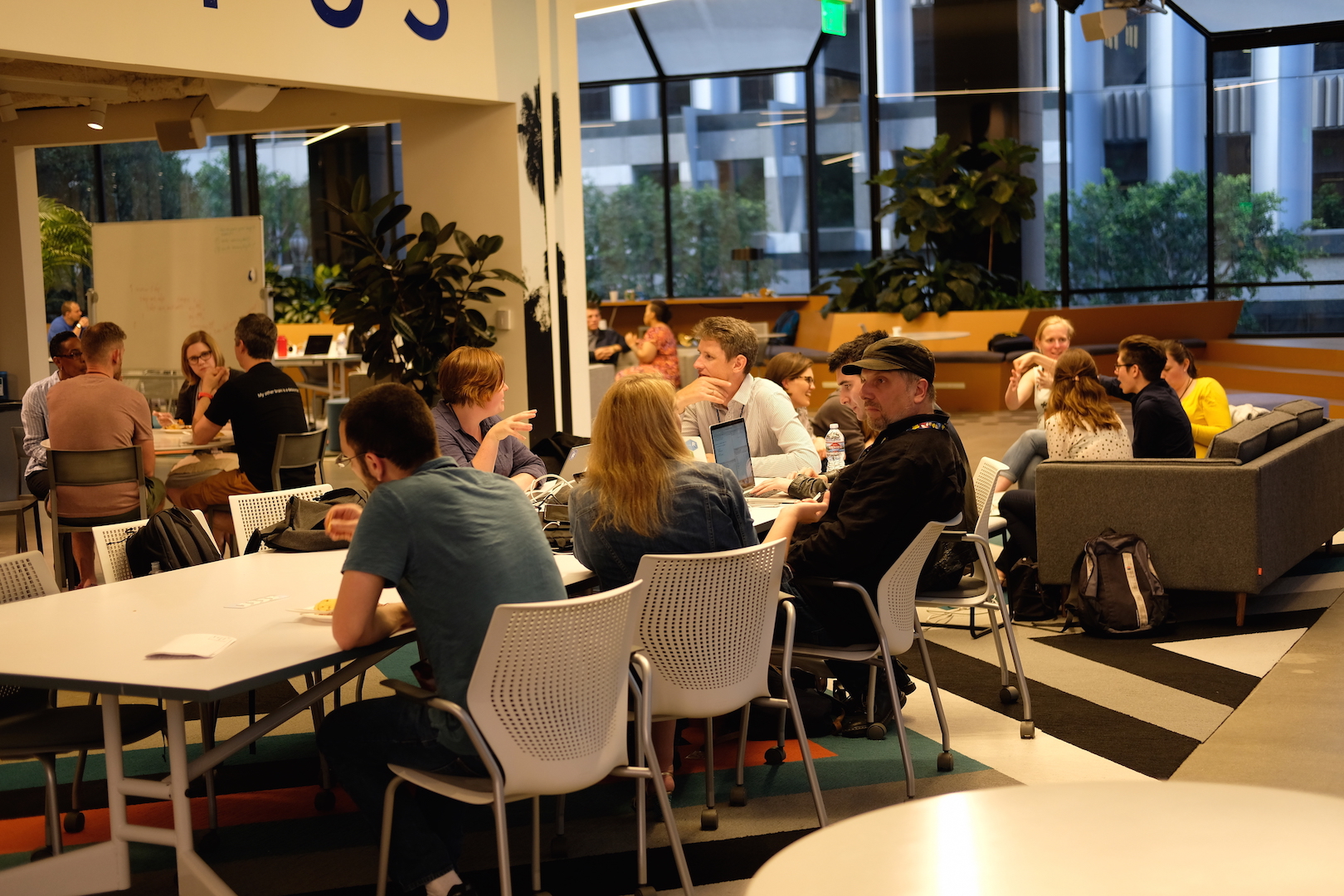
Not only did our funders and sponsors - Helmsley Charitable Trust, Alfred P. Sloan Foundation, Microsoft, Google, DataCamp, and NumFOCUS - help us make this happen, but representatives from Microsoft, Google and DataCamp fully participated in unconf projects!
Near the end of Day 2, each group had three minutes with the mic to report on their projects with only their README.md to use as presentation material. The code for all projects is available at ropenscilabs, our “in-development” home on GitHub. Thanks to Sean Kross, you can easily browse all unconf17 projects. Soon we’ll publish a series of short posts covering all of them.
For a FULL LIST of #runconf17 #rstats projects here is a link (including awesome emojis) 📦🎉⭐️💻https://t.co/FsoOu5gUAr pic.twitter.com/gHbZOfBNTV
— Alice Data (@alice_data) May 27, 2017
Here’s a sample:
-
skimris a package that provides tidy summary statistics directly from a pipe. The outputs are generic and allow users to quickly understand their data and learn what is missing. -
notaryis an R package that verifies the integrity of R packages so that a user only installs signed releases. The package also verifies release signatures. -
emldownprovides a way to easily visualize complex markup from the Ecological Metadata Language. The package generates summary html using Twitter bootstrap and provides summary information about the data, temporal + spatial coverage, data tables, units and more. -
checkersis a framework for reviewing analysis projects. It provides both automated checks for best practises as well as a descriptive guide for best practices.
We shared brief summaries of ALL projects in a series of five posts:
- skimr, emldown, testrmd, webrockets
- checkers, gramr, data-packages, exploRingJSON
- available, miner, rcheatsheet, ponyexpress
- cityquant, notary, packagemetrics, pegax
- mwparser, Gargle, arresteddev
🔗 Community is One of #rstats Best Assets
As rOpenSci’s Community Manager, my favorite aspects of unconf17 were watching connections being made between people, hearing them reflect on their (context-dependent) place in the R community, and being able to step back and support community-focussed discussions and activities initiated by the participants themselves! There are so many community-minded people flying under the radar, I can’t afford to name just a few.
Join the lunchtime #runconf17 discussion about the #rstats communities - what do we need to do to improve? pic.twitter.com/ztbXxNfqU7
— Alice Data (@alice_data) May 26, 2017
Speaking of awesome community, R-Ladies - a world-wide organization to promote gender diversity in the R community - was incredibly well-represented by founders of the global organization as well as of local chapters.
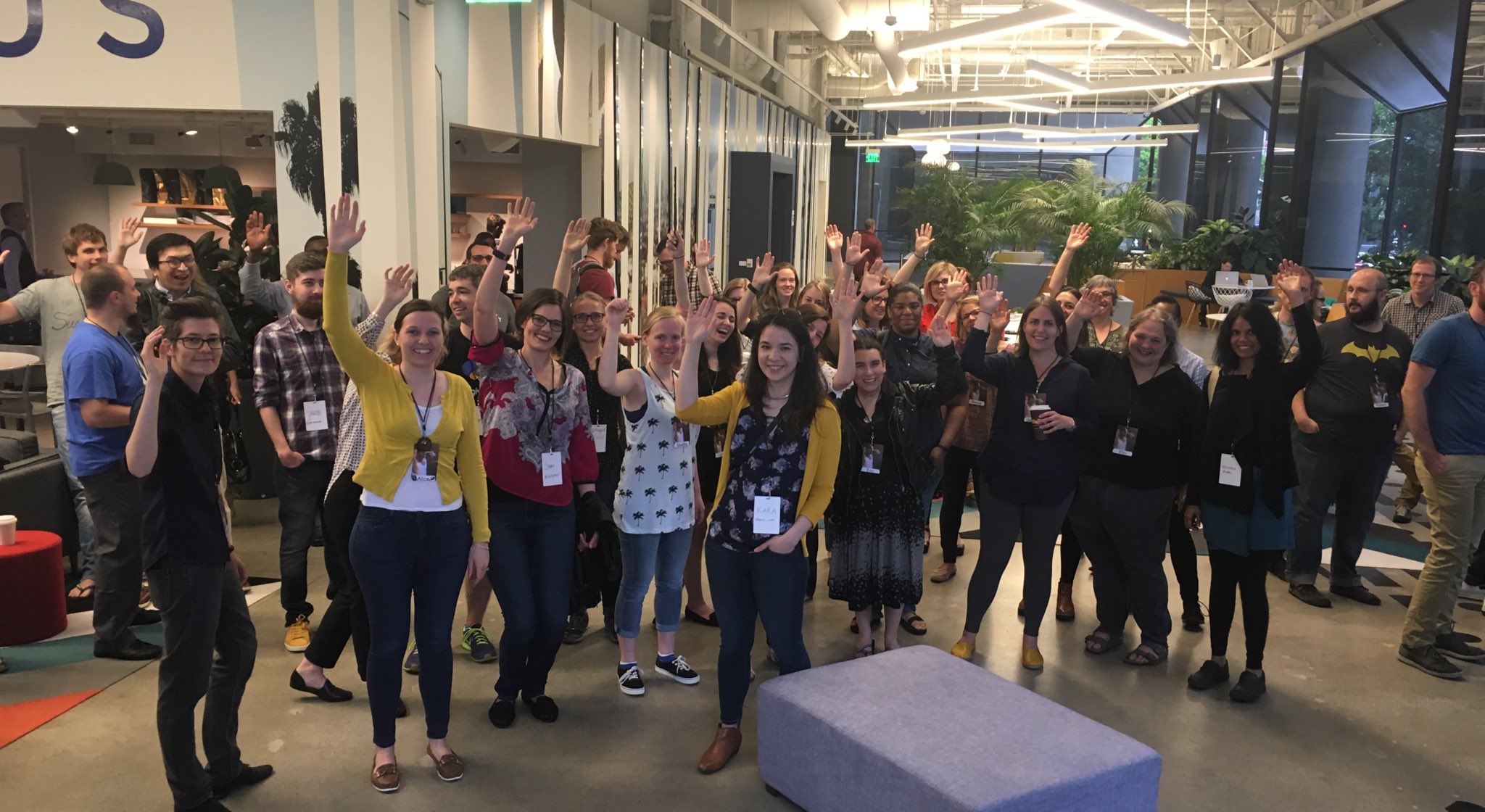
unconf17 R-Ladies. Photo (c) Nistara Randawa
rOpenSci aims to help people see what they can be. Over 45% of participants were women or other underrepresented genders. With an aim of reducing barriers to participation, we covered the cost up front for anyone who requested it.
🔗 What’s Your Story?
Several people have already written about their unconf17 experience. Have you? Share the link in the comments below and we’ll add it here.
🔗 Projects posts
- rOpenSci #runconf17 : checker project, by Alice Daish
- Tackling the Research Compendium at #runconf17, by Noam Ross, Alice Daish, Laura DeCicco, Molly Lewis, Nistara Randhawa, Jennifer Thompson, Nick Tierney
- packagemetrics - Helping you choose a package since #runconf17, by Becca Krouse, Erin Grand, Hannah Frick, Lori Shepherd, Sam Firke, William Ampeh
- Launching webrockets at runconf17, by Alicia Schep, Miles McBain
- skimr for useful and tidy summary statistics, by Eduardo Arino de la Rubia, Shannon Ellis, Julia Stewart Lowndes, Hope McLeod, Amelia McNamara, Michael Quinn, Elin Waring, Hao Zhu
- notary - Signing & Verification of R Packages, by Rich FitzJohn, Oliver Keyes, Stephanie Locke, Jeroen Ooms, Bob Rudis
- emldown - From machine readable EML metadata to a pretty documentation website, by Maëlle Salmon, Andrew MacDonald, Kara Woo, Carl Boettiger, Jeff Hollister
- Unconf 2017: The Roads Not Taken, by Noam Ross
🔗 Community posts
- Hey! You there! You are welcome here, by Shannon Ellis
- L.A. Unconf-idential : a.k.a. an rOpenSci #runconf17 Retrospective, by Bob Rudis
- My Experience at the 2017 rOpenSci Unconference. 13/10, would attend again!, by Jasmine Dumas
- A Year of rOpenSci’s Unconf, by Sean Kross
- Reflections on rOpenSci Unconference 2017, by David Smith
- rOpenSci Unconf 2017, by Karl Broman
- runconf17, an analysis of emoji use, by Lucy McGowan
- Ceci n’est pas un conf., by Mara Averick
- Sense the enthusiasm for what happened via the Twitter hashtag: #runconf17
I know that unconf17 had a big impact on many people, including me. Our vibrant example of walking the talk of being welcoming, creative, respectful and supportive - all while being wildly productive - is bound to have a lasting impact on the R community in general.
Thank you all you wonderful people who participated in #runconf17 ! pic.twitter.com/8fxEhC5zDG
— rOpenSci (@rOpenSci) May 27, 2017
